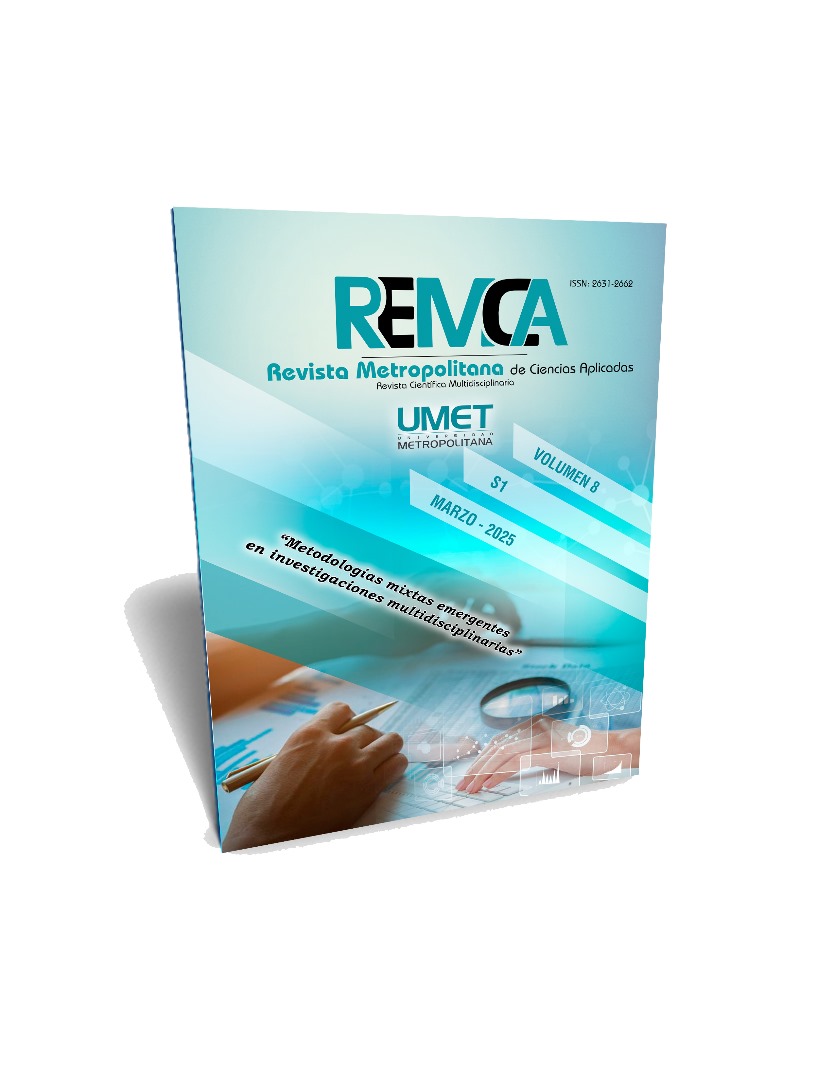The influence of emotional intelligence on the learning of primary school students
DOI:
https://doi.org/10.62452/1dfsfx50Keywords:
Learning, intelligence, emotionsAbstract
This article arises from the need to provide elementary school students with tools that allow them to successfully deal with everyday situations related to the management of their emotions. Therefore, the article examines the relationship between emotional intelligence and the learning process in elementary school students, since an emotionally competent student can overcome emotional and cognitive obstacles, favoring a more effective and enriching educational experience, since they improve concentration, problem solving and the ability to work in a team, which in turn significantly impacts their academic performance. Through a review of previous studies, it is demonstrated how emotional competencies, such as self-control, empathy, and emotional regulation, influence the academic performance and social adaptation of students. The study emphasizes the relevance of incorporating strategies that promote the development of students' emotional intelligence, in accordance with the principles of the New Mexican School. These approaches not only facilitate the adequate management of emotions in the school environment, but also promote greater motivation and contribute to the creation of a more favorable learning environment. In addition, the discussion discusses how emotional intelligence contributes to students' overall well-being and their ability to cope with academic and personal challenges. The results suggest that promoting emotional skills in primary education can have a significant impact on academic success and on building healthy interpersonal relationships.
Downloads
References
Bisquerra Alzina, R. (2003). Educación emocional y competencias básicas para la vida. Revista de Investigación Educativa, 21(1), 7-43. https://revistas.um.es/rie/article/download/99071/94661/397691
Bisquerra Alzina, R. (2009). Metodología de la investigación educativa. La Muralla.
Cabrera Miquel, M. (2021). ¿Qué es una emoción?. Quaderns de Filosofia, 8(2), 145–191. https://doi.org/10.7203/qfia.8.2.21376
Casacuberta, D. (2000). ¿Qué es una emoción? Editorial Crítica.
Cedeño Sandoya, W. A., Ibarra Mustelier, L. M., Galarza Bravo, F. A., Verdesoto Galeas, J. R., & Gómez Villalba, D. A. (2022). Habilidades socioemocionales y su incidencia en las relaciones interpersonales entre estudiantes. Revista Universidad y Sociedad, 14(4), 466-474. https://rus.ucf.edu.cu/index.php/rus/article/view/3068/3019
Crisóstomo Munayco, F. E. (2021). Desarrollo de la inteligencia emocional en los estudiantes escolares: una revisión de la literatura científica del 2015 al 2020. Revista Conrado, 17(82), 372-377. http://scielo.sld.cu/pdf/rc/v17n82/1990-8644-rc-17-82-372.pdf
Descartes, R. (1649). Tratado de las pasiones del alma. Tecnos, Biblioteca Nueva y Edaf.
García Cruz, R., Cáceres Mesa, M. L., & Bautista Díaz, M. L. (2019). Convivencia y bienestar: categorías necesarias para la educación positiva. Revista Universidad y Sociedad, 11(4), 177-183. http://rus.ucf.edu.cu/index.php/rus
Gardner, H. (1995). Inteligencias Múltiple La Teoría en la Práctica. Paidós.
Gardner, H. (2000). Lo que todo estudiante debería aprender. Paidós.
Goleman, D. (2007). La inteligencia emocional. Editorial Kairós SA.
Lazarus Richard, S. (1991). Emotion and adaptation. Oxford University Press.
Macías, M. A. (2002). Las múltiples Inteligencias. Psicología desde el Caribe, 10, 27-38. https://www.redalyc.org/pdf/213/21301003.pdf
Muñoz García. J. (2024). Inteligencia emocional y rendimiento académico en una niña de 9 años de edad. (Tesis de maestría). Universidad Estatal Península de Santa Elena.
Rodríguez-Barboza, J. R. (2024). Inteligencia Emocional como Factor Determinante en el Rendimiento Académico en Estudiantes. Revista Docentes 2.0, 17(1), 400–411. https://doi.org/10.37843/rted.v17i1.496
Trueba Atienza, C. (2009). La teoría aristotélica de las emociones. Signos filosóficos, 11(22), 147-170. http://www.scielo.org.mx/scielo.php?script=sci_arttext&pid=S166513242009000200007&lng=es&tlng=es
Verastegui Chuquillanqui, G. G. (2023). Inteligencia Emocional y Aprendizaje Colaborativo de Estudiantes del Sexto Grado de la Institución Educativa Nº 3030. (Tesis de Maestría). Universidad Alas Peruanas.
Downloads
Published
Issue
Section
License
Copyright (c) 2025 Maritza Librada Cáceres-Mesa, Angélica Jiménez-Lozada, Octaviano García-Robelo (Autor/a)

This work is licensed under a Creative Commons Attribution-NonCommercial-ShareAlike 4.0 International License.
Authors who publish in Revista Metropolitana de Ciencias Aplicadas (REMCA), agree to the following terms:
1. Copyright
Authors retain unrestricted copyright to their work. Authors grant the journal the right of first publication. To this end, they assign the journal non-exclusive exploitation rights (reproduction, distribution, public communication, and transformation). Authors may enter into additional agreements for the non-exclusive distribution of the version of the work published in the journal, provided that acknowledgment of its initial publication in this journal is given.
© The authors.
2. License
The articles are published in the journal under the Creative Commons Attribution-NonCommercial-ShareAlike 4.0 International License (CC BY-NC-SA 4.0). The terms can be found at: https://creativecommons.org/licenses/by-nc-sa/4.0/deed.en
This license allows:
- Sharing: Copying and redistributing the material in any medium or format.
- Adapting: Remixing, transforming, and building upon the material.
Under the following terms:
- Attribution: You must give appropriate credit, provide a link to the license, and indicate if any changes were made. You may do this in any reasonable manner, but not in any way that suggests the licensor endorses or sponsors your use.
- NonCommercial: You may not use the material for commercial purposes.
- ShareAlike: If you remix, transform, or build upon the material, you must distribute your creation under the same license as the original work.
There are no additional restrictions. You may not apply legal terms or technological measures that legally restrict others from doing anything the license permits.




